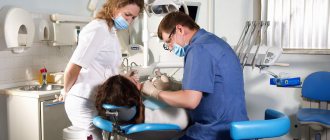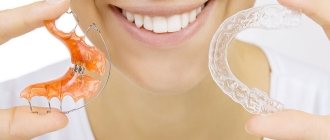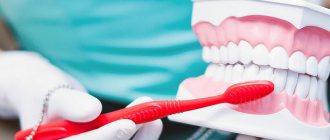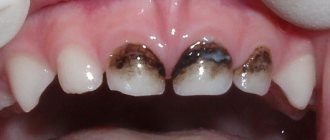What profession could a modern person not imagine his life without? Every day we meet hundreds of representatives of different fields, but day X comes, and then we start thinking about those specialists whom many are afraid of. We are, of course, talking about dentists. Many are afraid of these doctors and endure toothache to the last, so today we decided to tell you more about the dental profession and prove that these are wonderful and kind people who wish their patients only goodness and health. What specializations exist in dentistry, does this profession have pros and cons, and where should you go to study to become a dentist? The dentist-therapist answered all our questions Elena Bobkova.
Story
The history of the profession goes back a long way. The first mention of dental diseases appeared in the writings of Hippocrates. Moreover, he proposed eliminating them with the help of a hot iron. In those days, many people suffered from toothache, and the mortality rate from ordinary gumboil was quite high. Then knowledge about teeth and their care begins to develop rapidly.
In the East, in 500 AD, the first toothbrushes appeared. Forceps for removing diseased teeth appeared in the 4th century AD. Ancient civilizations suffered quite a lot from toothaches, so powerful drugs appeared to relieve them: arsenic, opium, etc. Already in these times, people realized that it was possible not only to remove a diseased tooth, but also to treat it, eliminating only the damaged area. So in 659 the first fillings appeared. Dentistry was developing rapidly in Europe.
This branch of knowledge came to Russia during the reign of Peter the Great. It was he who officially introduced the profession of dentist. From now on, the rapid development of dentistry begins in our state. In 1881, the first educational institution that trained future dentists appeared in St. Petersburg. Behind him, similar institutions are opening throughout the state.
Modern dentistry is a high-tech science that is constantly improving methods of treatment and prevention of oral diseases. Even the loss of a tooth is no longer a problem, because there are prosthetics, extensions and many other procedures aimed at creating the ideal “Hollywood” smile for every person.
Description
The dentist's profession covers a fairly wide range of activities: treatment, prevention, surgical interventions, prosthetics, bite correction and much more. Therefore, modern science has divided this branch of knowledge into several specific areas:
- Dentist-therapist. This is the specialist most familiar to each of us. He conducts an initial examination and performs standard dental treatment - eliminating caries, inflammatory processes and infectious diseases of the oral cavity. This is the first specialist the patient sees. His responsibilities include diagnosis, treatment or referral to a more specialized specialist.
- Orthopedic dentist. This is a specialist who deals with the elimination of bite deformities and dental prosthetics. He knows all the features and nuances of these processes. Proficient in prosthetics (removable, fixed, combined) and microprosthetics.
- Dentist-surgeon. This is a specialist who eliminates defects through surgical interventions. This doctor routinely deals with dental implantation and extraction. He can handle procedures aimed at preserving teeth, treating inflammatory processes and neoplasms of the oral cavity and small facial tumors. He prepares the mouth for the subsequent prosthetic procedure, treating disease processes of the TMJ, trigeminal nerve and salivary glands. His responsibilities include surgical treatment of wounds of the face, mouth and neck, plastic surgery and reconstruction of the jaw, diagnosis of common severe diseases based on their symptomatic manifestations in the face, mouth and neck. These usually include tuberculosis, syphilis, etc. This specialist also performs operations on periodontal surfaces.
- Maxillofacial surgeon. This specialist performs surgical interventions of varying complexity. They are deeper and more complex than those of a dental surgeon. Such surgical interventions are performed under general anesthesia and require a lot of knowledge and skills.
- Pediatric dentist. Milk teeth have their own specifics and a number of features. This specialist knows everything about their structure and correct treatment methods. In addition, he is also a good psychologist. It’s not so easy to put a child in a dentist’s chair.
- Dentist-orthodontist. This is a specialist who works with dental anomalies that arise as a result of natural processes: genetic predisposition, age-related changes or deformations due to tooth loss or periodontal disease. Unlike a prosthodontist, he does not deal with cases that result from trauma.
All these specializations are combined under the name of the profession “dentist”. They include a huge range of knowledge and skills. These specializations are irreplaceable.
What specialties to study?
In order to become one of the specialists in the field of maxillofacial and dental pathologies, you should choose the specialization “Dentistry”.
Requirements for a dentist
In addition to the clearly limited responsibilities that define the work of a doctor, there are also qualification indicators that are used to guide the employment of specialists.
People who:
- have a diploma with higher medical education, a certificate of a certain specialization;
- passed a medical examination and received a medical certificate;
- have experience in this field;
- have computer skills;
- presence of responsibility, sociability, attentiveness and accuracy.
Personal qualities and skills are no less important for this profession. These include:
- the presence of excellent coordination of movements, hand motor skills, excellent vision;
- knowledge of human anatomy and physiology;
- understanding the effects of medications used in dentistry;
- ability to use specialized instruments, as well as an X-ray machine and interpret images.
It is inherent in a dentist to be a bit of a psychologist, to be able to communicate with nervous patients, to correctly explain the situation in order to relieve nervousness and calm the patient.
Where to study
You can get a dental diploma in almost every regional center of the Russian Federation. The following higher education institutions are recognized as the most prestigious:
- Moscow State Medical and Dental University named after. A. I. Evdokimova.
- St. Petersburg State Pediatric University.
- First Moscow State Medical University named after I.M. Sechenov.
- North-Eastern Federal University named after M.K. Ammosova.
- Peoples' Friendship University of Russia (RUDN).
These universities, like many others, will allow you to obtain all the necessary knowledge for successful employment as a dentist.
Tips and tricks for employment
Starting a career path for a young specialist is not easy. To get a position as a practicing doctor, you need at least 3 years of work experience. To facilitate employment, yesterday's students should listen to the following recommendations:
- Those who do not have work experience should initially look for a position as a dental assistant. The person holding this position helps the doctor sterilize instruments, accompanies patients to examination rooms, performs medical manipulations, photographs, and performs other duties that will help him gain the necessary skills.
- Final year university students should look for an assistant position without waiting for their diploma. In this case, by the time they graduate, they will have a little experience that will help them find a job.
- After 1–2 years of working as an assistant, you can try to look for a position as a practicing dentist. The easiest way for a young doctor to get a job as a dental therapist. Working in this specialty will provide a large amount of knowledge and skills that will be useful in the future if the doctor wants to become an orthodontist, orthopedist or surgeon.
What do you have to do at work and specializations?
The range of activities of a dentist directly depends on his specialization.
The dentist-therapist daily encounters people coming for preventive examinations or with acute pain for caries treatment. He removes the affected areas of the tooth using special equipment and places crowbars on them to close the exposed tooth tissue and prevent further development of disease-causing processes. The dentist also treats inflammatory processes of the gums. He knows how to diagnose the stage of the disease and select individual correct treatment. The dentist is constantly faced with infectious, fungal and bacterial processes in the oral cavity. These are various stomatitis, candidiasis, etc. They can only be eliminated through skillful selection of treatment.
Surgical specialties. These doctors perform surgical interventions and tooth extractions. Their activity is associated with the need to open tissues of the oral cavity, face or neck to carry out the necessary manipulations. It is the surgeon who removes teeth, plastics these areas and eliminates tumor formations. Abscesses, abscesses - all this is the sphere of activity of a dental surgeon or maxillofacial surgeon.
Orthopedic dentist. This specialist eliminates defects in the jaw and tooth growth line that arise as a result of injury. He also deals with prosthetics and implantation. His work is complex and requires maximum precision and care. The slightest deviation and the work will have to start all over again.
Dentist-orthodontist. This specialist deals with the elimination of deformations that are a consequence of age-related changes. He usually works with malocclusions, eliminating them by installing brackets, plates and braces.
Pediatric dentist. The range of his responsibilities is similar to that of a dental therapist. He only works with children and teenagers. It is important for this specialist to persuade the child to treat his teeth and teach patients the rules of oral care.
The difference between a dentist and a dentist
A dentist is a dentist who is a paramedic. This concept is more commonly used abroad; in some countries it simply has not taken root.
This profession differs in the type of education. You can study at a medical school, college and get a secondary education to become a dentist, but dentists only need a higher education. Accordingly, their specialization will be different.
Responsibilities of a dentist:
- examination of the patient, making a primary diagnosis;
- gum treatment;
- installation of seals;
- oral hygiene instructions;
- provision of pre-medical care and referral to specialists;
- assistance in choosing toothpaste and brush.
A dentist is trained to work with simpler cases than a dentist, so his income will be different.
Who is this profession suitable for?
This profession is suitable for people with well-developed coordination of movements, in particular fine motor skills of the hands. Good long-term memory and 100% vision are important. The slightest inaccuracy and the patient may lose a tooth or experience severe pain.
Demand
This profession is in very high demand.
Media tools for conducting classes
For preschoolers and elementary schools there is a cartoon “The Good Doctor Dentist” (film production), which relieves the fear of visiting the dentist, and also provides nutritional recommendations and tips for brushing teeth.
Another educational cartoon, “Profession of a Children's Dentist,” can be watched with schoolchildren in both primary and secondary classes, and even used in discussions with senior classes (questions for discussion will be below).
How does one usually build a career?
A career can be built in two directions:
- Practical. A dental intern develops into a full-time doctor. Then, gaining experience and demonstrating your development, you can grow to the head of the department and deputy head physician. The peak of the career is the position of chief physician.
- Theoretical. This is a scientific activity. To do this, upon graduation, you should apply to graduate school. Then you should defend your candidate's and doctoral dissertations. This will help you open a private school, which will be the peak of your career.
Prospects for the profession
The dentist profession is in demand and prestigious. Earnings are quite high, so the very opportunity to receive that kind of money is already a good prospect. In the future, you can develop and get the position of chief physician, become the owner of your own clinic or a private school of dentistry.
If you still have even the slightest doubt that the dentist profession is right for you, then we strongly recommend taking a career guidance test from Profguide . It costs mere pennies, and at the same time allows you to avoid mistakes that can go in the wrong direction and cripple your entire life. Find out more >>
Reviews from experts
Maria, dentist-therapist, work experience - 12 years
I work in public dentistry. There's no big money here. To have high income, you need to get a job in a private clinic or open your own business. Physically, my job is hard because I have to stand bending over a patient for the entire shift. This often causes neck and back pain. In recent months, I began to think about going into private structures. Tired of bending your back for a salary that is only enough for food.
Ivan, dental surgeon, 10 years of experience
He began his career as an assistant in public dentistry. A few years later he began to practice on his own. Today I work simultaneously in 3 clinics - 2 private and 1 public. Despite the heavy workload, I can cope because I have enough experience. But I want to warn schoolchildren who want to become dentists that they will constantly have to deal with blood, saliva and pus. If you are not afraid of this, then you are welcome to join the profession.
You may also be interested
- Speech therapist Speech therapists (defectologists) diagnose and treat speech disorders. Most often their patients are preschoolers,...
- Career Guidance Test: “Who to become?” Here you can take a 30-item test that is aimed at measuring your interests,...
- Surgeon Surgeons do not show off their work, but meanwhile they perform operations every day, ranging from...
- Nurse The profession of a nurse is noble and at the same time difficult. The work requires not only the application of special knowledge...
- Hairdresser The profession of a hairdresser will always exist, because it is difficult to find a person who does not want to be beautiful. Specialist…









